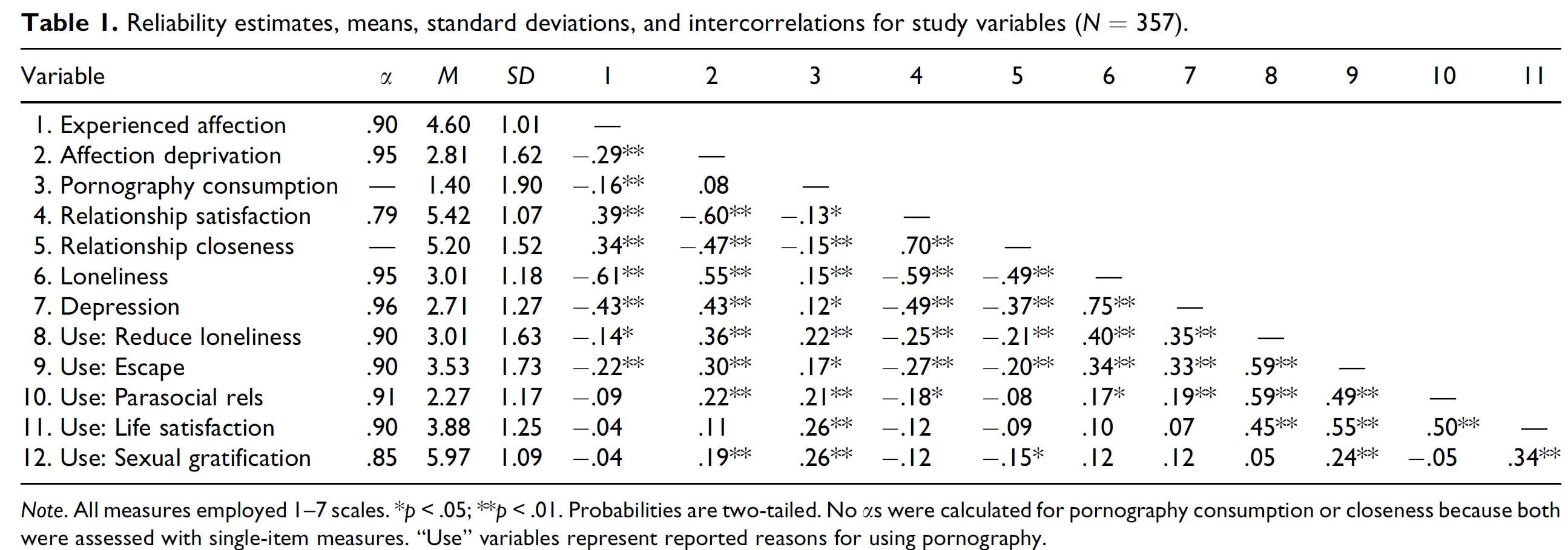Hesse, Colin, and Kory Floyd.
Journal of Social and Personal Relationships (2019): 0265407519841719.
Abstract
Scholars have stated that humans have a fundamental need to belong, but less is known about whether individuals can use other resources to substitute for close relationships. In this study, 357 adults reported their level of affection deprivation, their weekly pornography consumption, their goals for using pornography (including life satisfaction and loneliness reduction), and indicators of their individual and relational wellness. We hypothesized that individuals might consume pornography as a coping mechanism (either adaptive or maladaptive) to deal with affection deprivation, with affection deprivation relating to the goals for using pornography and consumption potentially moderating the relationships between affection deprivation and the outcome measures. As predicted, affection deprivation and pornography consumption were inversely related to relational satisfaction and closeness, while being positively related to loneliness and depression. Affection deprivation was positively related with most stated goals for pornography use (although the relationship between affection deprivation and pornography consumption was nonsignificant). The moderation hypothesis, however, showed little evidence, yielding a moderating effect only on the relationship between affection deprivation and depression (with nonsignificant effects for relational satisfaction, closeness, and loneliness). Overall, there is some evidence that pornography consumption is used as a form of affection substitution (dealing with the perception of affection deprivation). However, there is no evidence of consumption being either adaptive or maladaptive when it comes to relationship satisfaction, closeness, and loneliness, although it is possibly maladaptive in terms of depression.
Keywords Affection, deprivation, need to belong, pornography consumption, relational health
